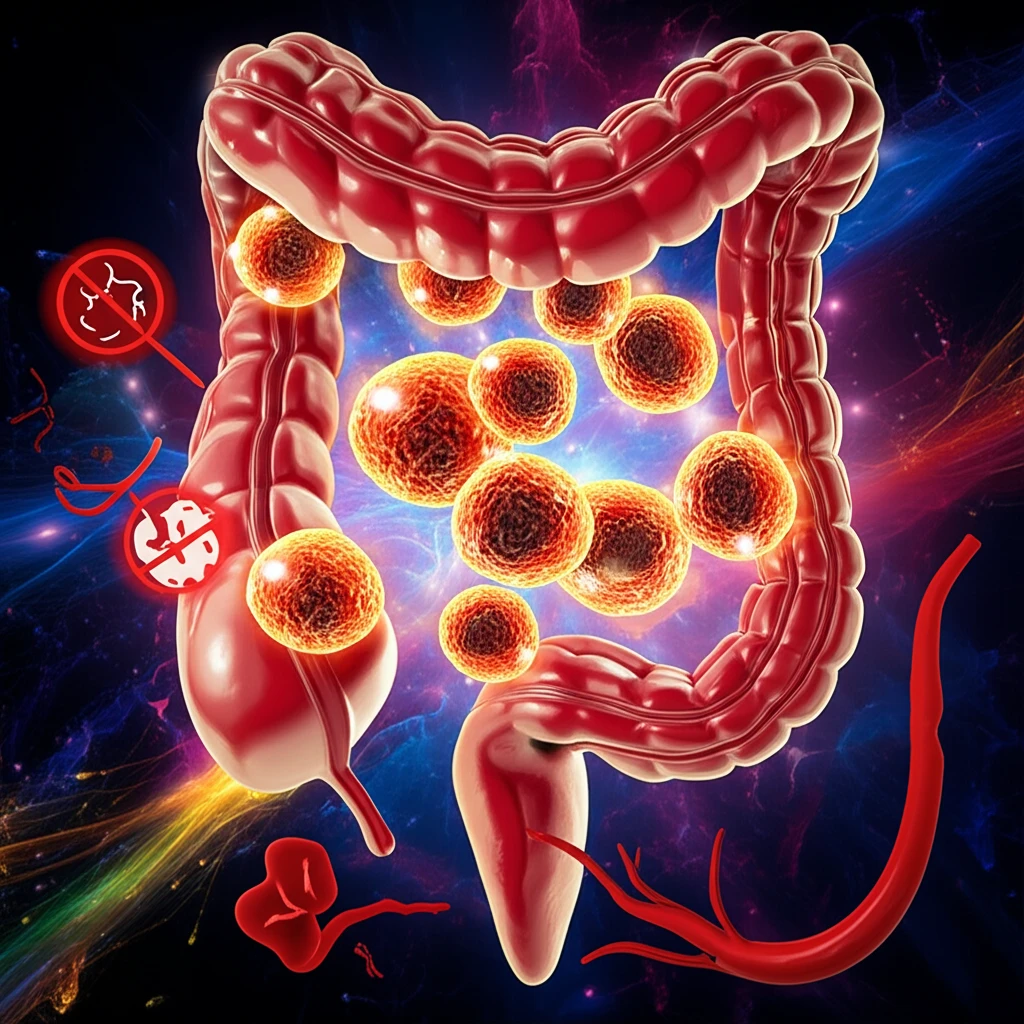
Unlock the Power of Cryptotanshinone: A Natural Weapon Against Colon Cancer
"Discover how this compound from a traditional herb could revolutionize colon cancer treatment by targeting inflammation, angiogenesis, and tumor growth."
Colorectal cancer is a significant global health challenge, ranking among the most prevalent cancer types worldwide. While our understanding of this disease has grown, advances in treatment have been slow, and existing therapies often have limited effectiveness and cause substantial side effects. This underscores the urgent need for new, effective strategies to combat colon cancer.
Emerging research highlights the critical roles of tumor angiogenesis (the formation of new blood vessels that feed the tumor) and inflammation in the development and progression of colon cancer. Angiogenesis is essential for tumor growth and metastasis, while inflammation creates a microenvironment that supports cancer development. Targeting these processes offers promising avenues for new treatments.
Now, a promising natural compound called cryptotanshinone (CPT), isolated from the traditional Chinese herb Salvia miltiorrhiza Bunge, has emerged as a potential game-changer. Studies suggest that CPT possesses remarkable anti-cancer properties, making it a compelling candidate for further exploration in the fight against colon cancer.
How Cryptotanshinone Targets Colon Cancer: A Multi-Faceted Approach

A recent study published in International Immunopharmacology sheds light on the exciting potential of cryptotanshinone (CPT) in combating colon cancer. Researchers investigated CPT's effects on CT26 colon cancer cells, both in laboratory settings and in living organisms, aiming to understand its mechanisms of action. The results revealed that CPT effectively:
- Inhibited cell proliferation and tumor growth: CPT significantly slowed down the growth and multiplication of CT26 colon cancer cells, both in vitro (in cell cultures) and in vivo (in animal models).
- Suppressed invasion: CPT reduced the ability of CT26 cells to invade surrounding tissues, a critical step in metastasis.
- Modulated MMP/TIMP balance: CPT decreased the production of matrix metalloproteinases (MMP-2 and MMP-9), enzymes that break down the extracellular matrix and facilitate cancer cell invasion. Simultaneously, it increased the levels of tissue inhibitors of metallopeptidases (TIMP-1 and TIMP-2), which block MMP activity.
- Reduced angiogenesis: CPT hindered the formation of new blood vessels that feed tumors, both in vitro and ex vivo (outside a living organism), potentially by suppressing factors that promote angiogenesis.
- Combated inflammation: CPT curbed the expression of inflammatory factors in both in vitro and in vivo models.
A Promising Future for Cryptotanshinone in Colon Cancer Therapy
This research provides compelling evidence for the potential of cryptotanshinone as a therapeutic agent against colon cancer. By targeting multiple pathways critical for tumor growth, invasion, angiogenesis, and inflammation, CPT offers a comprehensive approach to combating this disease. While further research is needed to fully understand its effects and optimize its use, CPT holds significant promise for improving the treatment of colon cancer and improving patient outcomes.
